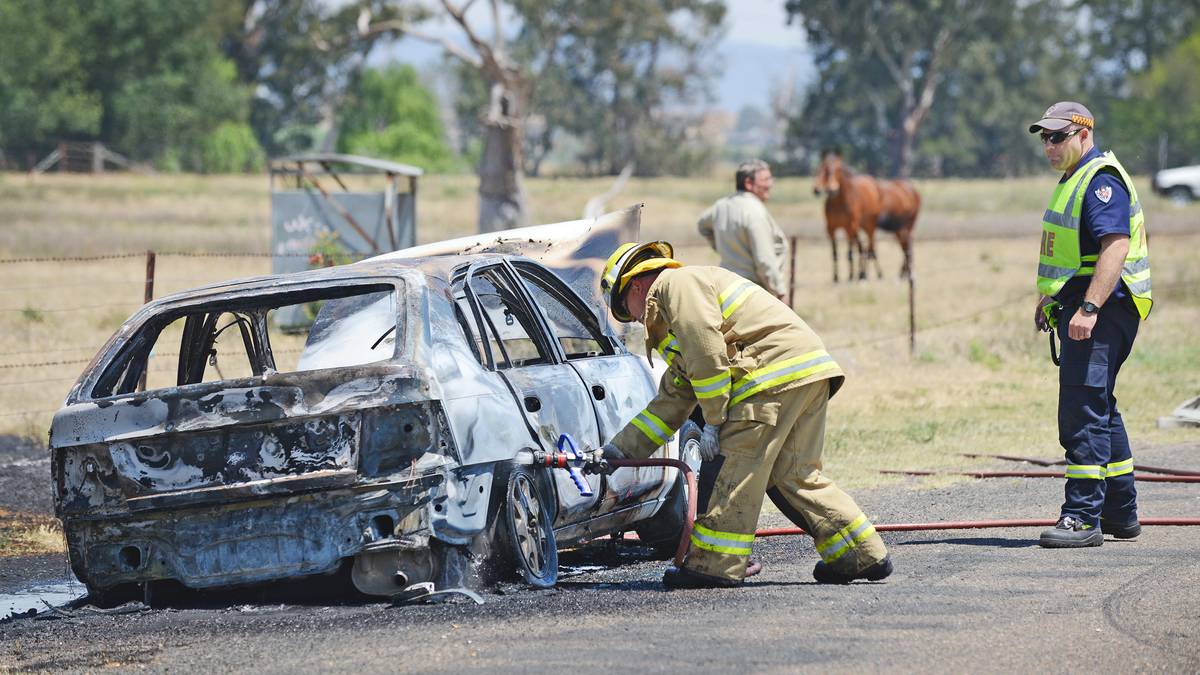How prepared are you if a fire starts on or spreads to your farm? As a firefighter, this is a question I think about a lot. Last week my crew was called to a grass fire on some grazing land close to Tamworth. The fire actually started with a car catching alight. But it quickly spread to the paddocks beside the road.
There were a couple of issues with this fire. The first was it was actually quite difficult to get to the paddocks to put the fire out.
The gate into the paddock was directly below a large tree, so there was no way any vehicle, let alone a fire truck could drive through the gate.
Secondly the paddock was being grazed by several horses. The horses were panicked by the flames, smoke, noise and trucks. I was very concerned that they would do themselves major injuries on the fence line as they galloped around the paddock to escape the fire.
Fortunately we were able to cut the fence, extinguish the fire and allow the horses owner to calm the animals down. But its had me thinking a lot about the impact of fire on larger holdings.
How prepared are you for a fire? If anything people are probably over confident in their fire preparations. Every fire is different. This is because the fuel available to burn, the temperature, the wind and the humidity are all different, and these impact on fire behaviour.
I reckon its essential that every year you make the time to review your fire plan. The NSW Rural Fire Service has a great checklist to help you plan and prepare for a fire.
Its called the Farm FireWise Checklist and Action Plan. Its designed to help you think through the areas you should be preparing, so that if a fire does occur, you at least have some measures in place to protect you life, your animals, your home and your infrastructure.
For example have you thought about things such as what is the plan for communications if a fire starts? Can you rely only on mobile phones? What is the Local Radio or CB channel?
How is access to your farm? Where would you direct fire trucks to go? Can they get into paddocks without having to cut fences? Where are your water supplies? Are you relying only on poly pipe laid across the ground?
In recent fires some producers fire fighting response failed because the poly pipe they were relying on melted in the fire.
Where will your livestock be safe? Can you move your stock to a location that has been cultivated or heavily grazed so that there is nothing to burn? Is it safe to muster your animals, or will it be quicker to cut your fences and allow them to move to safety?
After the fire has been extinguished or it has passed your property you need to think about checking there is no further risk to your infrastructure, such as smouldering posts or material.
For your livestock what feed will you have to provide them with. In most cases hay is the best option to provide to livestock following a fire. This is because hay is more suitable for all classes of stock than grains, and it is more rumen friendly, meaning there is less risk of digestive upsets and illness among stock.
You need to assess all your animals and treat those animals that have been burnt or injured. The NSW DPI has a useful guideline to assessing bushfire burns in livestock and you should refer to this guide.
Hopefully you will never have to experience the impact of a fire on your farm or in your local area.
Having said that, don't ever assume you won't be impacted by a fire. Even worse don't assume that if a fire happens you can handle it without some preparation.
Taking the time to update your plan, make sure you know how to respond, where to go, who to talk to and what your actions will be if a fire occurs is going to be the most important thing you can do this year.
If you do have a fire, ring 000 and put your plan into place. I reckon if we all do this, its going to help save lives, property and stock.




